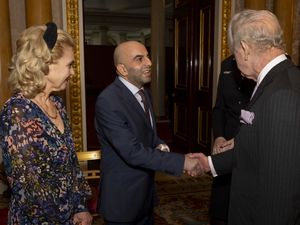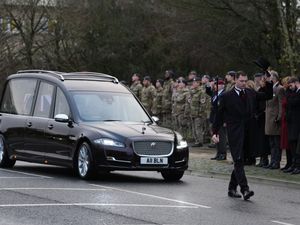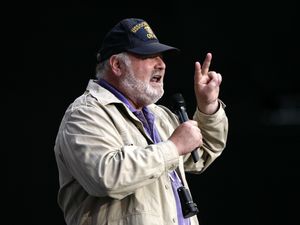May offers to sacrifice her premiership to get her Brexit deal through
Opposition from the Democratic Unionist Party may still block the Prime Minister’s Withdrawal Agreement.
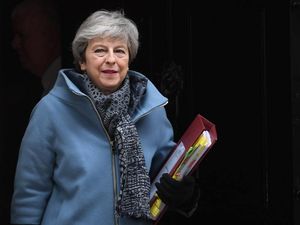
Theresa May has sounded the death knell on her own premiership by promising to stand down as Prime Minister for the next phase of Brexit negotiations.
Mrs May did not name a date for her departure from 10 Downing Street, but her announcement sets the stage for a likely Conservative leadership election within the coming weeks or months.
It came as MPs voted down all eight Brexit options in a series of “indicative votes” designed to establish what kind of deal might secure a majority in Parliament.
Proposals for a second referendum on any Brexit deal won 268 votes and a customs union plan won 264, but both were defeated, by 27 and eight votes respectively.
A call for withdrawal without a deal was emphatically rejected by 400 votes to 160.
Mrs May’s shock announcement came in a last-ditch bid to secure backbench support for her Withdrawal Agreement by the Friday deadline set by the European Union.
But it seems her offered sacrifice may have been in vain, as the Democratic Unionist Party announced it would not back a deal which “poses an unacceptable threat to the integrity of the United Kingdom”.
In a potentially fatal blow to Mrs May’s chances, DUP leader Arlene Foster said that the Northern Irish party “cannot sign up” to the deal because of its controversial “backstop” provisions.
Westminster leader Nigel Dodds made clear that the party’s 10 MPs will vote against the deal if it is brought back for a third “meaningful vote”, declaring: “The DUP do not abstain on the Union.”
The decision leaves Mrs May in need of the votes of large numbers of Labour MPs or rebel Tory Brexiteers, many of whom are expected to be strongly influenced by the DUP’s stance.
She has indicated she will only make a third attempt to pass the deal, following its overwhelming defeat by 230 votes in January and 149 in March, if she has a credible chance of success.
Brexit figurehead Boris Johnson signalled he was among former rebels considering swinging behind the PM.
Close ally Conor Burns tweeted that the former foreign secretary was telling Leave-backing MPs that “we have little choice but to vote for the Withdrawal Agreement”.
But European Research Group (ERG) chairman Jacob Rees-Mogg said he would be guided by the DUP as “guardians of the Union of the United Kingdom”.
It was unclear whether the PM would regard herself as obliged to stand down if her deal was defeated or the Government held back from tabling it.
In those circumstances, Mr Rees-Mogg said she “would have every right to carry on” as PM.
After a meeting of Eurosceptic Tories in the ERG, a source said there was “no way enough votes are coming out of that room to put the Withdrawal Agreement through”.
Former Brexit minister Steve Baker told the meeting he was in a “ferocious rage” after the “pantomime” of Mrs May’s announcement and indicated he “may yet resign the whip than be part of this”, a source said.
Mrs May spoke to the influential Tory backbench 1922 Committee shortly before MPs took part in the highly unusual “indicative votes” procedure.
She said she “will not stand in the way” of the party having new leadership, telling MPs: “I am prepared to leave this job earlier than I intended in order to do what is right for our country and our party.”
One MP who witnessed the address, George Freeman, said that the PM had “tears not far from her eyes” as she admitted: “I have made many mistakes. I am only human. I beg you, colleagues, vote for the Withdrawal Agreement and I will go.”
Mr Freeman, a former policy aide to the PM who had called on her to name a date for her departure, told the BBC: “There was silence in the room and it was incredibly sad.”
Downing Street signalled that the PM is keeping open the possibility of tabling her Withdrawal Agreement for a third “meaningful vote” on Thursday or Friday if victory seems in reach.
The deal must be passed by the end of the week if the UK is to benefit from the EU’s offer of an automatic delay to Brexit to May 22.
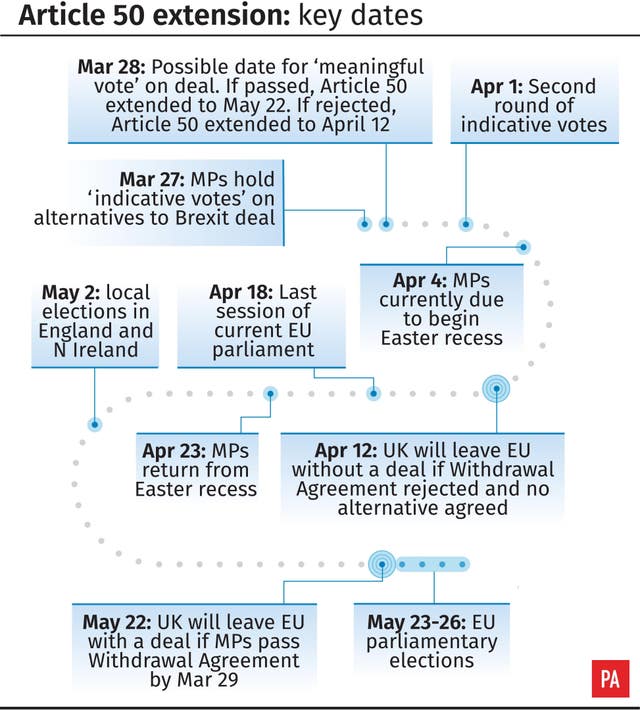
But Commons Speaker John Bercow infuriated ministers by reminding them of his ruling that there needed to be significant change to the deal if it was to be brought back before the Commons.
Mrs May told her MPs: “I have heard very clearly the mood of the parliamentary party. I know there is a desire for a new approach – and new leadership – in the second phase of the Brexit negotiations – and I won’t stand in the way of that.
“I know some people are worried that if you vote for the Withdrawal Agreement, I will take that as a mandate to rush on into phase two without the debate we need to have. I won’t – I hear what you are saying.
“But we need to get the deal through and deliver Brexit.”
Mrs May acknowledged that it had been “a testing time” for the party and the country, but said: “We’re nearly there. We’re almost ready to start a new chapter and build that brighter future.
“But before we can do that, we have to finish the job in hand.”
She urged MPs to back her deal “so we can complete our historic duty to deliver on the decision of the British people and leave the European Union with a smooth and orderly exit”.
Earlier, Mrs May moved to prevent possible ministerial resignations by allowing Conservative MPs a free vote on the indicative votes.
Sir Oliver Letwin, whose amendment put Parliament in control of the Commons agenda for Wednesday, said it was a “very great disappointment” that none of the indicative votes had produced a majority.
He said he hoped the Commons would be able to “reach a majority view” when the most popular options are brought back for further discussion on Monday.
Anne Marie Morris, Conservative MP for Newton Abbot, said she voted against each of the eight options except for the option to leave without a deal.
She accused the PM of “having, frankly, the audacity to agree to an extension without going through the usual protocols of taking it to Parliament first”.
She said: “What I’m absolutely convinced about is her deal is the only way of guaranteeing that we don’t get Brexit.
“The reality is after what’s happened tonight, I think she’s going to be thinking long and hard about that deal because, frankly, it looks to me as if it’s dead.”



